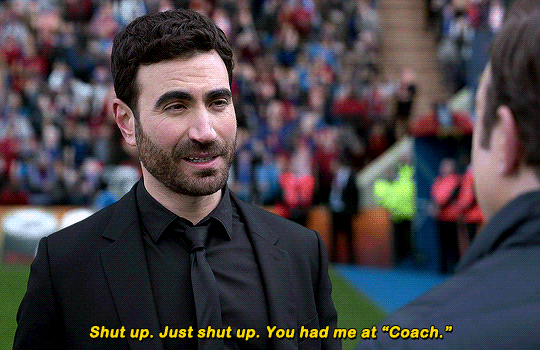"Basic Human Anatomy"
Original Airdate: April 25, 2013
Have you ever wondered what life would be like if you could switch places with someone for just a day? I think, if we’re being honest with ourselves, we all have longed to swap lives with someone else. But here’s the funny thing about desiring to live another life – we never do it when we’re content in our own lives. The reason, of course, that we dream about what it would be like to live in someone else’s shoes is because we’re prone to a “grass is greener on the other side” mentality. When we lament the way that our lives turned out – our lack of jobs, fortune, romance, functional families, friends, etc. – we tend to covet the lives of people we feel are better off in those areas than we are. We long after a life that wasn’t ours to have, while those individuals are (likely) longing for lives that they don’t have as well. It’s a viciously ironic cycle, this coveting of someone else’s days. But we like to play pretend. When we’re kids, we play “house,” and use plastic swords to ward off invisible monsters. Because the truth is that we’re all dreamers, in some fashion, and reality… well, reality often squelches those dreams pretty quickly. So what does “Basic Human Anatomy” have to do with this notion of living vicariously through someone else? If you watched the episode, you’ll know that it has nearly everything to do with this idea. Troy cannot bear to face a conversation that he needs to have with Britta. The solution, for him, is the adult version of “playing pretend” (or, well, maybe not the adult version) by reenacting a body swapping movie with Abed. And at the end of the episode, no matter how painful the process, Troy has a second “Mixology Certification” moment of growth. And it’s pretty beautiful to behold, regardless of the bumps that were encountered along the way.









